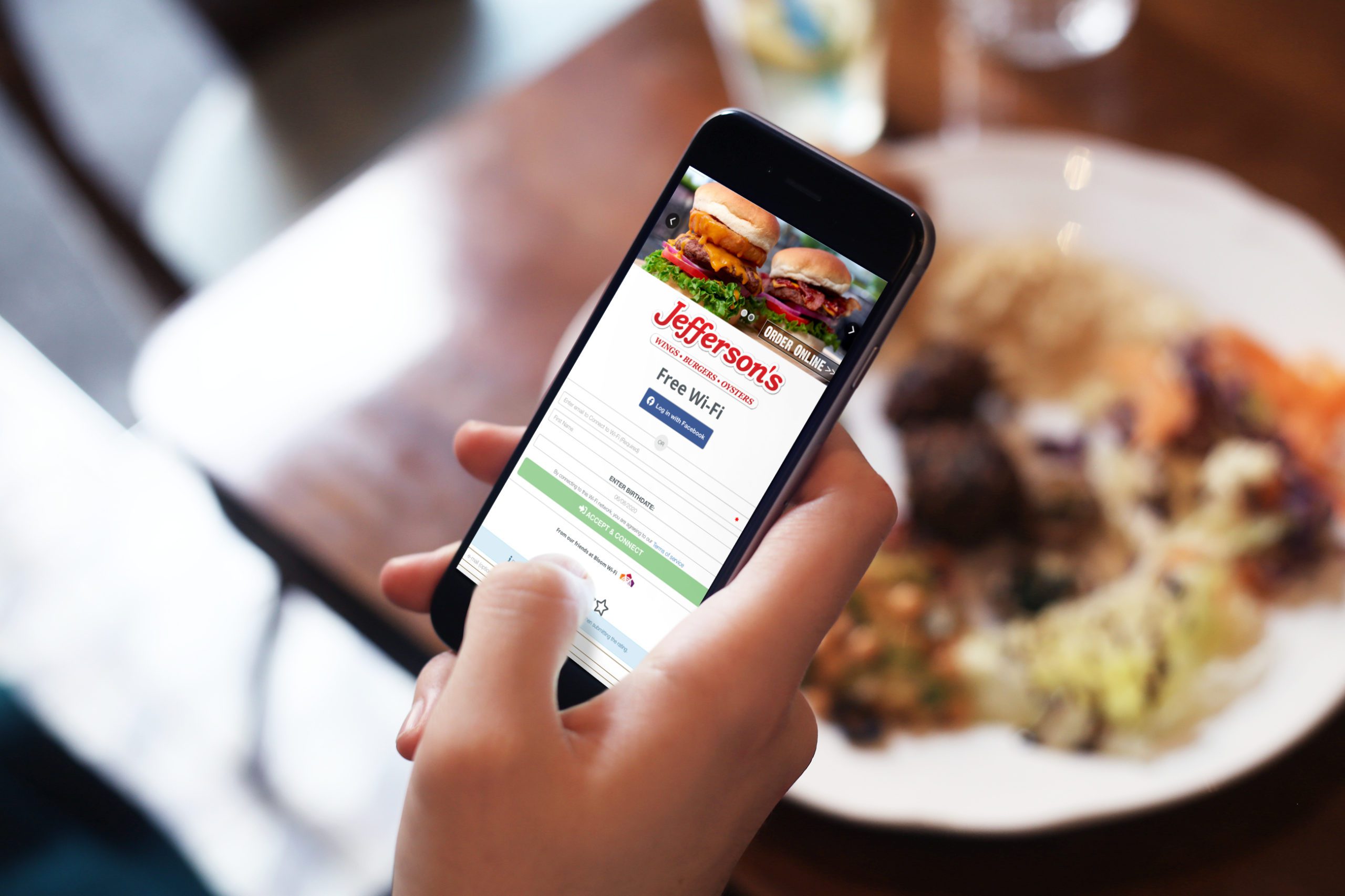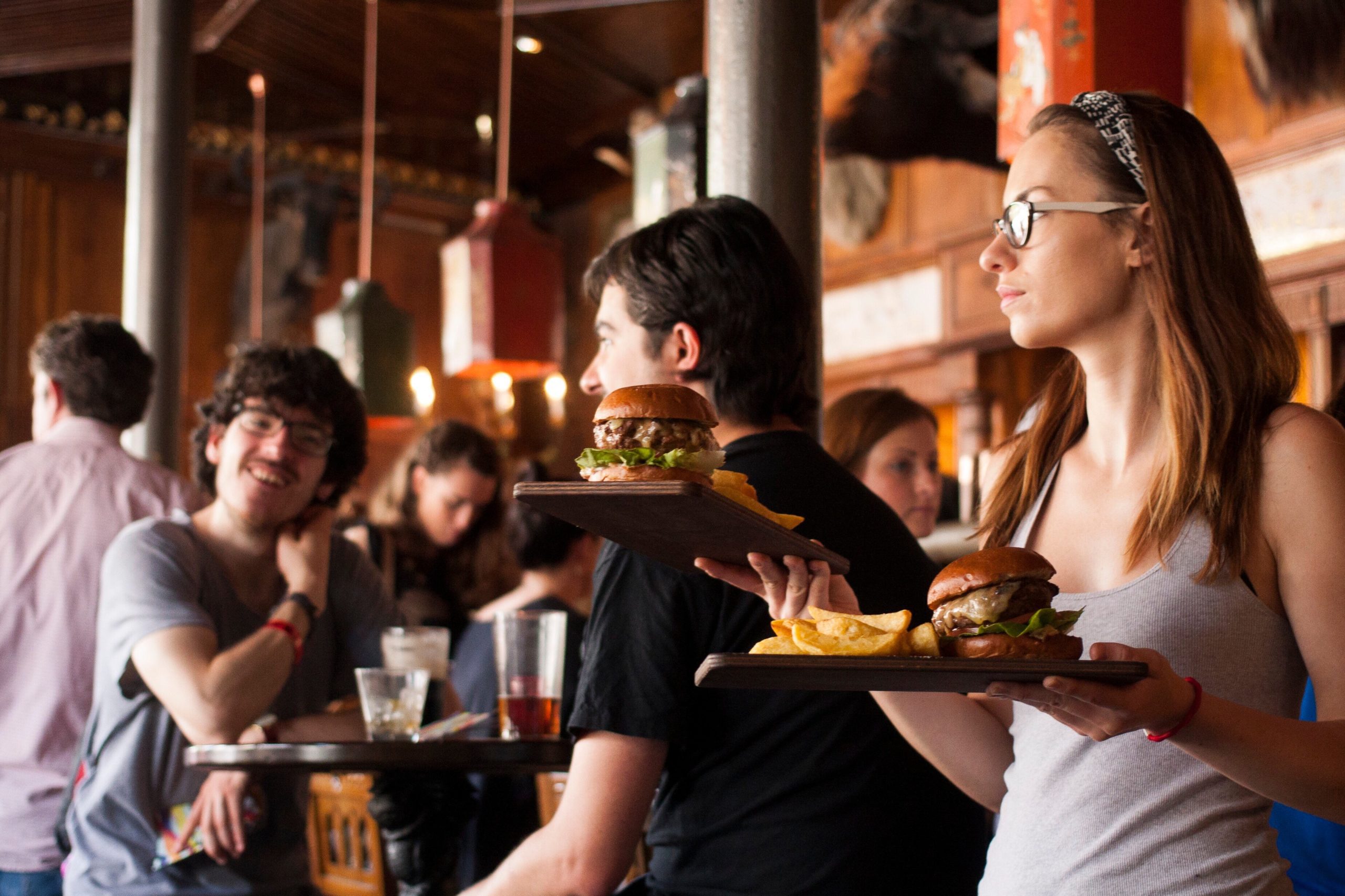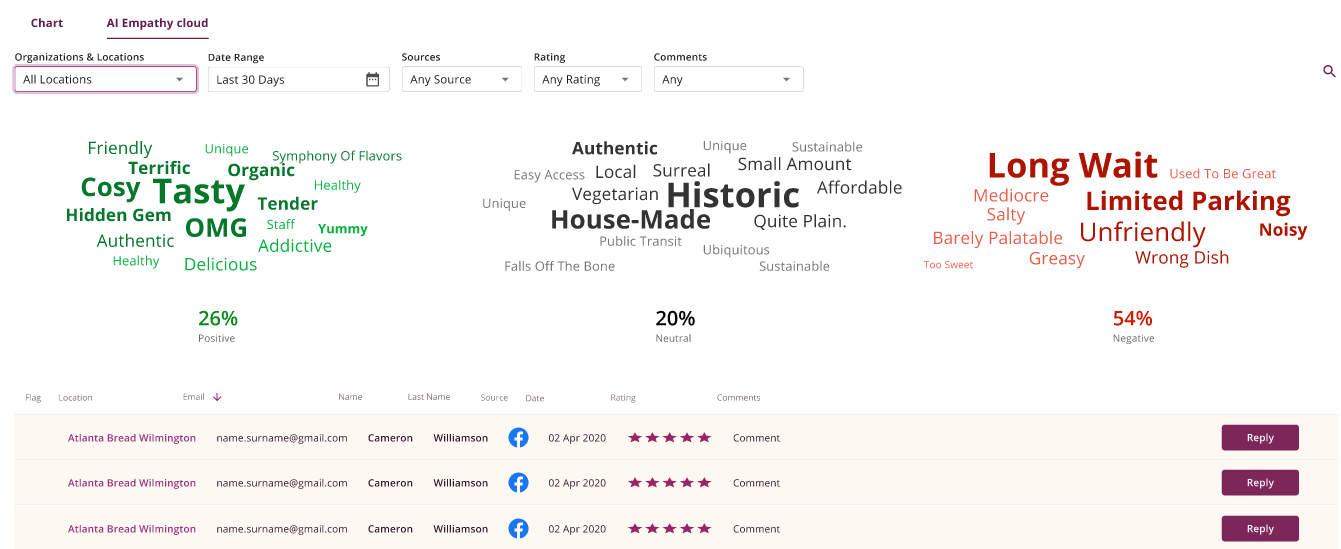In a competitive landscape filled with countless dining options, effective marketing sets you apart from the competition. You could offer the best cuisine in the world, but without a robust marketing strategy, chairs remain empty and tables unreserved.
Marketing amplifies your restaurant’s unique selling points, creates brand awareness, and most importantly, drives foot traffic and online orders.
In a digital age where consumers heavily rely on online reviews and social media recommendations, remaining passive in your restaurant marketing efforts is not an option.

Why Guest Data Is Crucial for Restaurant Marketing Success
Guest data is the cornerstone of any successful marketing initiative.
Consider this: not all of your guests are the same, so why should your marketing campaigns be one-size-fits-all?
Guest data allows you to segment your audience based on various factors such as visit frequency, age & gender, and other behaviors such as making a reservation or online order.
Armed with these insights, you can craft targeted campaigns that resonate on a more personal level.
For instance, if you know a segment of your guest list frequents your restaurant for weekend brunch, a targeted promotion for a new brunch menu item will likely yield higher conversions than a generic marketing blast.
Marketing a restaurant isn’t just about promotions and discount codes. It’s a multifaceted approach that thrives on data-driven decisions.
By prioritizing both marketing fundamentals and guest data analytics, you set your restaurant on a course for higher profitability and long-term success.
Gathering Data from Multiple Sources for a 360-Degree View of Your Guests
To truly understand your guests and tailor your marketing strategies effectively, a single data source isn’t sufficient. A comprehensive, 360-degree view of your guests requires data collection from various touchpoints, such as:
 WiFi Logins
WiFi Logins
When guests connect to your restaurant’s WiFi, it’s an opportunity to collect data. You can capture their email addresses and usage patterns, providing insights into how long they stay and how often they return.
Online Reservation Systems
Reservation data doesn’t just secure a table for your guests, it secures valuable information for your marketing initiatives. Details like dining times or special requests for anniversaries or birthdays can enrich your guest profiles.
POS Systems
Point-of-sale systems are goldmines of transactional data. They can tell you what menu items are most popular, what times of day see the most traffic, and even how certain weather conditions affect sales.
Online Ordering Platforms
If you offer online ordering, this platform can tell you contact information, the average spend per order, and how frequently guests place orders.
Website Forms
If your website features a contact form or a newsletter signup, this is yet another avenue to collect guest data. This can help you identify what information your guests are seeking online, be it your menu, hours of operation, or special events.
Online Review Sites
Don’t overlook the power of online reviews. These platforms give you direct insights into guest satisfaction and areas for improvement. More importantly, they tell you what your guests value most in their dining experience.
By integrating data from these multiple sources, platforms like Bloom Intelligence offer you an unparalleled understanding of your guests. This data, when put into action through AI-powered marketing automation, enables you to craft marketing campaigns that are not just targeted but compelling.
The end result? More new guests walking through your doors and existing guests becoming loyal patrons.
Customer Segmentation for Targeted Automated Marketing Based on Guest Behavior
Mastering the art of marketing in the restaurant industry hinges on understanding one key principle: not all guests are created equal. They come from different backgrounds, have unique dining preferences, and engage with your restaurant in various ways.
Customer segmentation capitalizes on these differences, allowing you to divide your overall guest database into smaller, more manageable groups based on specific behaviors or characteristics.
Types of Behavior-Based Segmentation
1. Frequency of Visits: Identify guests who dine frequently and those who visit sporadically. Reward loyal patrons with exclusive offers and aim to re-engage those who haven’t visited in a while.
2. Average Spend: Recognize big spenders and tailor your promotions to upsell high-margin items or premium experiences.
3. Dwell Time: Do your guests dine and quickly leave, or do they dwell longer? Create promotions that will keep your guests in your restaurant and spend more.
4. Time of Visit: Some guests prefer brunch, while others are dinner regulars. Customize your promotions to feature relevant menu items based on the time of day they usually visit.

The Power of Automated Marketing
Once you’ve segmented your audience, the next step is to put this data to work through automated marketing. For instance, if a guest usually dines for lunch but not dinner service, you could craft a campaign to get them to visit for dinner, as well.
Or if you notice that a segment of guests only visits during the holidays, automated reminders about booking a holiday reservation can go out well in advance.
With platforms like Bloom Intelligence, you can take this a step further by integrating AI-powered algorithms to predict future guest behaviors. Imagine knowing which guests are likely to become regulars or what new menu item is likely to become a hit even before it happens.
This enables not just reactive but proactive marketing strategies.
In a nutshell, combining behavior-based customer segmentation with automated marketing creates a synergy that boosts engagement, increases retention, and amplifies revenue. By delivering messages that resonate on an individual level, you’re not just marketing, you’re creating value. And in a competitive industry, that’s the key to long-lasting success.
At Bloom Intelligence, we offer a cutting-edge customer data platform to unlock these crucial guest insights. Our AI-powered marketing automation and reputation management tools help you not only find new guests but also turn all guests into regulars by delivering campaigns that are tailored, timely, and effective.

How Reputation Management Improves Marketing
In today’s interconnected world, a restaurant’s reputation isn’t just built within its four walls. Online reviews, social media chatter, and word-of-mouth significantly shape public perception, and in turn, influence guest behavior.
Effective restaurant reputation management is not merely damage control, it’s an essential component of your restaurant’s marketing strategy.
Builds Trust and Credibility: A well-managed reputation fosters trust. Potential guests often consult reviews and ratings before deciding where to dine. A consistent record of positive reviews nudges them to choose your restaurant over competitors.
Enhances Visibility: Active reputation management can improve your restaurant’s online search rankings. Promptly responding to reviews and maintaining high ratings make your restaurant more visible, thereby drawing in more guests.
Identifies Areas for Improvement: Monitoring what guests are saying about your restaurant provides insights into what you’re doing right and what needs improvement. This valuable feedback can be used to fine-tune both your in-house operations and marketing messages.
Encourages Brand Advocacy: Satisfied guests become your most potent marketers when they share their positive experiences. Encourage this by engaging with positive reviews and showing gratitude. These satisfied guests are more likely to share promotions and recommend your restaurant, effectively amplifying your marketing reach.
Personalizes Guest Experience: By understanding the concerns and praises mentioned in online reviews, you can segment your marketing efforts more effectively, offering deals or information that directly responds to guests’ needs and preferences.
With platforms like Bloom Intelligence, reputation management integrates seamlessly into your overall marketing efforts.
Our AI-powered tools not only help track and respond to online reviews but also provide actionable insights to improve both your reputation and your marketing strategies.
The best part is that responding to reviews can be completely automated, providing appropriate responses using AI while saving you time to dedicate to other important business tasks.
In summary, proactive reputation management does more than just put out fires, it fuels the engine of your marketing machine. When you know what your guests think and feel about their experiences, you can market to them more effectively, turning casual visitors into loyal advocates.

Discover Bloom Intelligence
Bloom Intelligence is an AI-powered restaurant marketing platform that includes a powerful customer data platform, automated data collection, marketing automation, and reputation management tools.
Guest data is collected from many different sources and aggregated into one single platform, making it simple and easy to analyze and segment your restaurant’s guest personas for your restaurant email marketing.
Data is collected from sources like WiFi logins, online reservation systems like OpenTable, online ordering platforms like Oracle’s GloriaFood or Toast, POS systems, website forms, and more.
Bloom makes guest data collection effortless, allowing you to quickly execute the strategies listed above, saving you time, increasing customer lifetime values, attracting new guests, improving your reputation, and boosting your bottom line.
Click Here to Schedule a Free Online Demo, or call 727-877-8181 to see how we can help you save time and drive tangible results for your restaurants.




.svg)